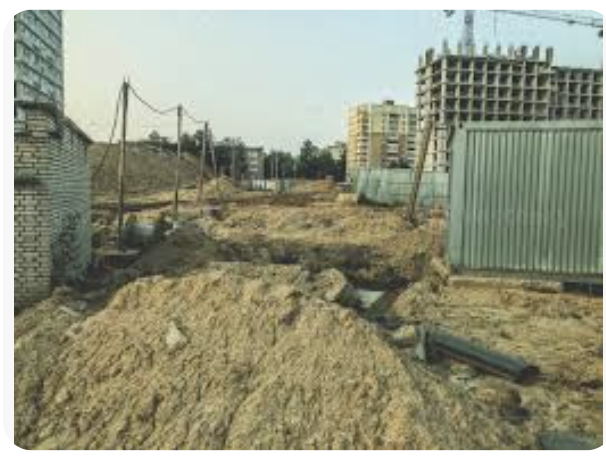Chips? Go fish
/“DEI mandates are … hindering the implementation of the CHIPS and Science Act, a bipartisan measure designed to enhance U.S. semiconductor supply chains and support private-sector investment in domestic research and manufacturing.”
“If you look through the notice of funding opportunity, which is the Commerce Department’s requirements in order to get funding, there’s literally the word diversity, equity and inclusion and DEI requirements littered throughout,” said Chris Nicholson, head of research at the firm Strive Asset Management. Strive, which was founded by former presidential hopeful Vivek Ramaswamy, has more than $1 billion in assets.
“Although this money is announced in some sense, it’s not even going to be given,” said Nicholson, who has researched the semiconductor industry. “That’s the key here. It’s not even going to be given unless [funding recipients], step by step, they meet, and they prove they’re meeting all of these DEI requirements.”
…According to [Rep. Jim Banks’ (R-IN)] memo, applicants for CHIPS for America funding must have a plan to employ ex-convicts, expand employment opportunities for people with “limited English proficiency,” hire more women for construction jobs, and produce a plan for contracting “diverse suppliers” that are women- and minority-owned.
In addition, applicants for large grants must guarantee “affordable, accessible, reliable, and high quality” child care for all workers, including all construction workers, allowing CHIPS and Science Act funding to be used for child care center construction.
And those battery chargers people are looking for? Same problem.
In 2021, the Biden administration pledged it would build 500,000 electric vehicle charging stations by 2030. So far, it’s built seven.
Last month, Transportation Secretary Pete Buttigieg—who administers the funds apportioned for EV charger construction in the $1.2 trillion Bipartisan Infrastructure Act—said Americans should not be surprised at the time it takes to stand up "a new category of federal investment."
"It’s more than just plunking a small device into the ground," Buttigieg said in an interview with CBS’s Face the Nation.
But internal memos from the Department of Transportation obtained by the Washington Free Beacon, as well as interviews with those who are responsible for overseeing the implementation of the electric vehicle charging station project, say the delay is in large part a result of the White House’s diversity, equity, and inclusion initiatives.
"These requirements are screwing everything up," said one senior Department of Transportation staffer who spoke on the condition of anonymity. "It’s all a mess."
>>>>
Shortly after taking office, [Biden] signed an executive order mandating that the beneficiaries of 40 percent of all federal climate and environmental programs should come from “underserved communities.” The order also established the White House Environmental Justice Advisory Council, which monitors agencies such as the Department of Transportation to ensure the “voices, perspectives, and lived realities of communities with environmental justice concerns are heard in the White House and reflected in federal policies, investments, and decisions.”
In order to qualify for a grant, applicants must “demonstrate how meaningful public involvement, inclusive of disadvantaged communities, will occur throughout a project’s life cycle.” What “public involvement” means is unclear. But the Department of Transportation notes it should involve “intentional outreach to underserved communities.”
That outreach, the Department of Transportation states, can take the form of “games and contests,” “visual preference surveys,” or “neighborhood block parties” so long as the grant recipient provides “multilingual staff or interpreters to interact with community members who use languages other than English.”
“This all just slows down construction,” says Jim Meigs, a senior fellow at the Manhattan Institute who focuses on federal regulation.
"These ‘public involvement’ requirements are impossible to quantify and even open builders up to lawsuits by members of the community where an electric vehicle charging station is set to be constructed."
How these equity requirements are relevant to the construction of a single electric vehicle charging station is unclear, Meigs said. But all applicants for federal funding must in many cases submit reports that can total hundreds of pages about how they will pursue "equity" every step along the way.
This leads to delays and increases costs throughout the construction process, one senior Department of Transportation official told the Free Beacon. "Highly Qualified" applications, internal memos state, must "promote local inclusive economic development and entrepreneurship such as the use of minority-owned businesses."
That can take the form of funding "support services to help train, place, and retain people in good-paying jobs or registered apprenticeships, with a focus on women, people of color, and others that are underrepresented in infrastructure jobs." A firm’s "workplace culture" should "promote the entry and retention of underrepresented populations."
"These onerous diversity, equity, and inclusion requirements handcuff professionals from making proper evaluations and prevent the government/public from funding the most deserving projects, instead funneling money towards less qualified applicants," the senior Department of Transportation official said.
Those regulations are visible throughout more than 500 federal initiatives across 19 agencies, according to the White House’s chief environmental justice officer Jalonne White-Newsome, who spoke during a White House Environmental Justice Advisory Council meeting on Wednesday. The Free Beacon accessed that meeting, which took place over Zoom and included more than 15 speakers from various federal agencies.

